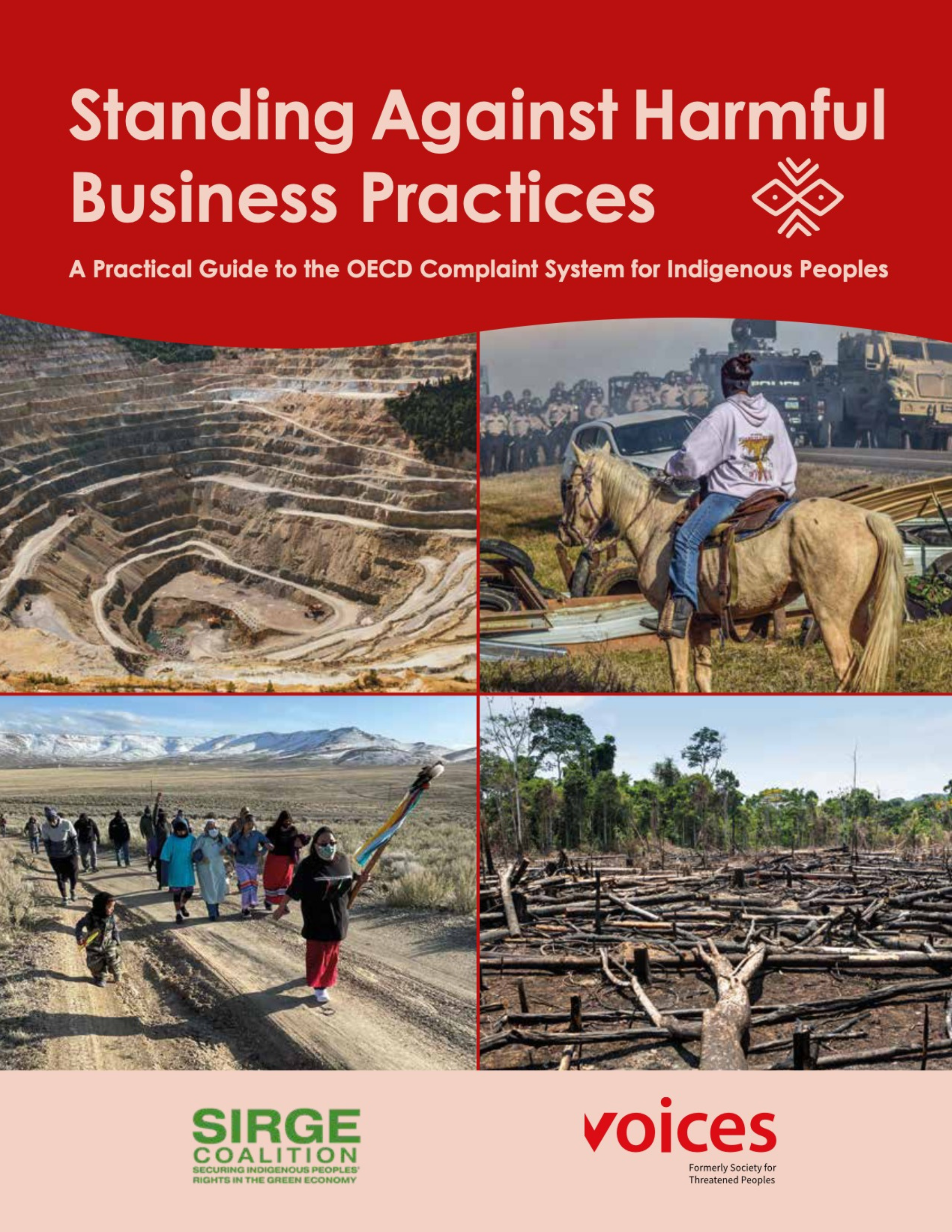
Securing Indigenous Peoples’ Rights
in the Green Economy
Renewable energy minerals such as nickel, lithium, cobalt, and copper are being promoted as critical to the development of a green, low carbon economy. Growing dependence on battery technology, especially for electric vehicles, requires a much higher supply of renewable energy minerals. Demand for transition minerals is skyrocketing.
Yet, increased mining for these resources threatens Indigenous rights and territories. A Just Transition to a low carbon economy will require governments and companies involved in the new green economy to observe and implement rights enshrined in the UN Declaration on the Rights of Indigenous Peoples, including the right to Free, Prior and Informed Consent.
Indigenous territories contain significant concentrations of untapped transition mineral reserves around the world.
Indigenous communities are taking a leadership role in emerging green energy economies by holding companies accountable to human rights commitments throughOUT the supply chain and raising awareness about these impacts on Indigenous communities.
Changing the world is possible. We’ve done it before.
The SIRGE Coalition is led by an Indigenous Steering Committee made up of two representatives of Indigenous Peoples from each of the seven socio-cultural regions across the globe, Chair of the Steering Committee, and Chair of the Executive Committee. The Coalition is staffed by an Executive Committee made up of representatives from each of the five lead organizations: Cultural Survival, Tallgrass Institute, Batani Foundation, Earthworks, and Voices.
SIRGE Coalition is fiscally sponsored by Earth Island Institute.
Click below to download our toolkit in the available languages to learn more about our coalition and what each of our organizations offers.
new Handbook for filing complaints against harmful business practices
Indigenous Peoples worldwide face increasing threats from large-scale resource extraction, agribusiness, and infrastructure projects carried out on their lands. These activities often result in loss of livelihoods, community disruption, and the erosion of cultural heritage. A practical guide for Indigenous Peoples informs how to use the OECD Guidelines to protect their rights.
To make this complaint process more accessible for affected communities, Voices and the SIRGE Coalition—supported by OECD Watch, Indigenous experts, and civil society organizations—developed this handbook. Its purpose is to help communities make informed decisions about whether and how this mechanism can be useful in their specific circumstances.
“Free, Prior and Informed Consent (FPIC) is the first line of defense when investors and government officials seek to develop projects that may affect Indigenous communities, lands, territories, and resources. For this reason, Indigenous Peoples must be prepared to engage with FPIC from a fully informed, proactive stance. Indigenous Peoples must have their FPIC protocols ready, and be ready to lead engagement around FPIC on their terms.”
New guide supports Indigenous leaders in developing FPIC protocols and securing self-determined priorities of their communities.
Guide on Free, Prior and Informed Consent

Many of the remaining untapped deposits of the metals critically needed for U.S. energy to transition from fossil fuels are located either near or within areas of cultural and environmental importance to Native Americans.
Among these key energy-transition metals, 97% of nickel, 89% of copper, 79% of lithium and 68% of cobalt reserves and resources in the U.S. are located within 35 miles of Native American reservations.
Mining companies have already faced opposition to mine development in many of these areas, reflecting the heightened risk to companies and investors arising from these conflicting priorities.


